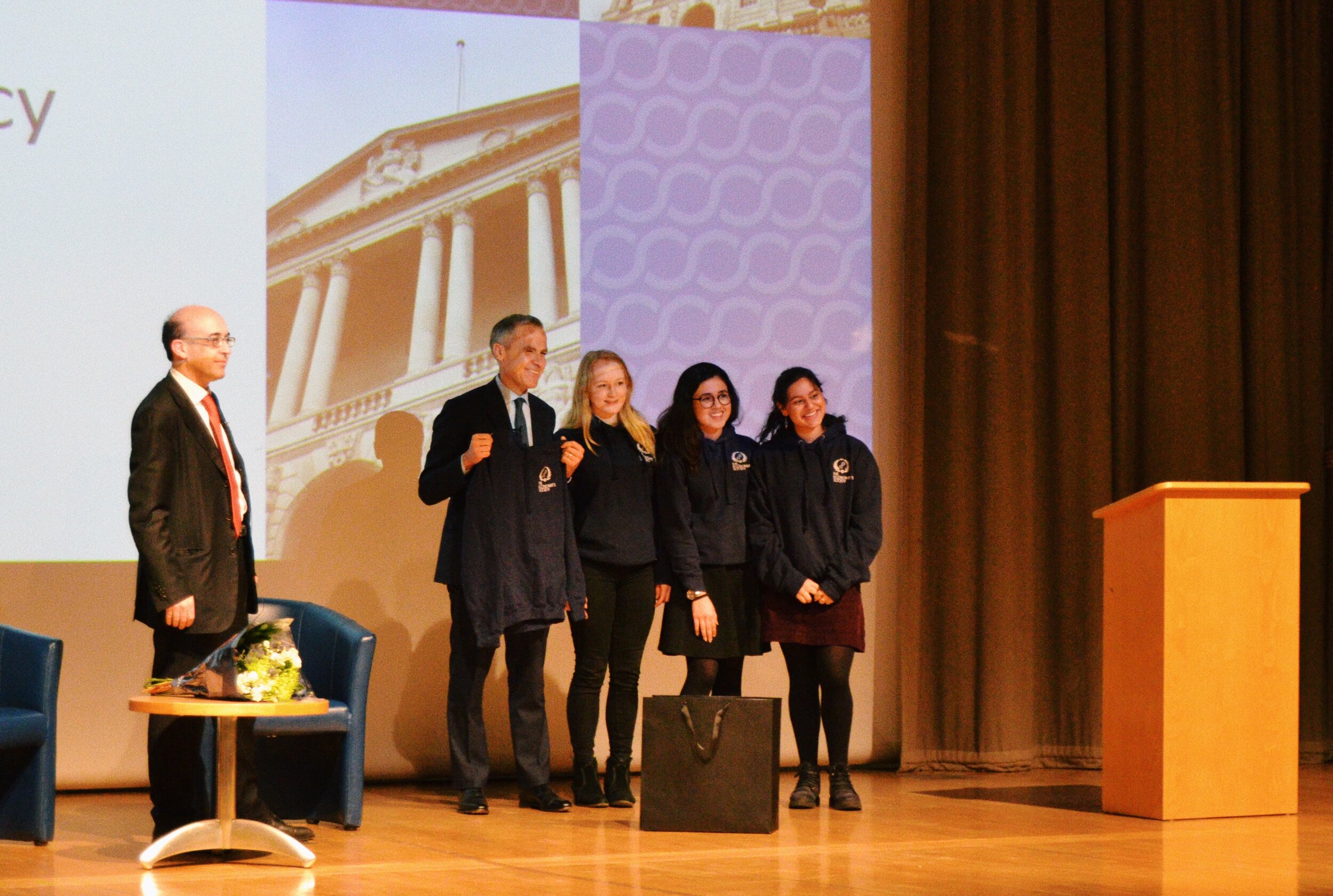Governor of the Bank of England speaks at UCL
Mark Carney, Governor of the Bank of England until last Sunday, spoke to an auditorium full of students about financial crises, climate change, and his time on the job.
On Tuesday 5th March, the auditorium at Logan Hall filled with over eight hundred people as the outgoing Governor of the Bank of England, Mark Carney, made the last public appearance of his seven-year tenure. Organised by UCL Economist’s Society, Carney’s talk, entitled “The Grand Unifying Theory (and Practice) of Macroprudential Policy”, focused on a branch of economic regulation aimed at reducing the risk and economic costs of financial crises.
With a nod to Isaac Newton, Carney described macroprudential policy as a mechanism by which central banks aim to protect the economy from the occasional “madness of people”. Carney has grown familiar with such instances of madness; he navigated the British economy through times of fiscal austerity, the looming threat of a no-deal Brexit, and the current coronavirus outbreak.
Determined to mitigate an economic fallout in 2016, the BOE cut rates to a record low of 0.25%, restarted bond purchases, and kept monetary policy exceptionally loose during an inflation spike driven by a slumping pound. During his time in office, Carney introduced the tool of forward guidance and prioritised efficiency of the policy setting procedure, managing to keep the country out of recession while sustaining a stable 1.6% inflation rate, nearing the 2% target.
When he left his role as Governor of the Bank of Canada to come to the UK in 2013, Carney stated that he was “going where the challenge is greatest”. Seven years later, as he prepares to pass on the position to UK financial regulator Andrew Bailey, Carney is to pursue a new undertaking – climate action. By taking on the position of UN Special Envoy for Climate Action and Finance, previously held by Michael Bloomberg, Carney acts on his long-held dedication to rendering the financial sector increasingly responsible for the environment. In efforts to limit global temperature rise to 1.5°C, Carney promotes the imposition of disclosure rules on firms, which would allow investors to move away from polluting industries.
“Once climate change becomes a clear and present danger to financial stability, it could already be too late to stabilise the atmosphere at 2°C; and in parallel, the longer adjustment is delayed, the more GDP at risk will grow,” predicted Carney. While praised for his attention to modern challenges such as climate change, the effectiveness of divestment in reducing fossil fuel extraction is contested.
As oil and capital remain the world’s most fundable commodities, the choice for some fund managers to shun polluter companies will arguably only lead to their replacement by other investors, eager for a rich dividend. Moreover, 66% of global oil reserves are controlled by OPEC, which are less susceptible to public pressure than European and North American companies, while remaining able to finance operations without foreign investment. Curbing fossil fuel consumption primarily requires a shift in demand, which is an issue that banks have been criticised for putting aside.
While Carney has addressed the climate crisis as a “risk on the horizon,” the current coronavirus pandemic could similarly be considered a systemic risk to global economy, with oil prices sliding by 25% in the days following Carney’s speech, affecting exchange rates and increasing uncertainty across the world. “A shock is coming to the economy, and there will be ramifications in the financial system. We have the resilience in the financial system and the level of preparedness that we need for that aspect of addressing the shock,” Carney assured the audience.
Asked about possible missteps during his tenure, he said: “I don’t have regrets in terms of the policies that we’ve done. Sitting here today I don’t feel that anything has frustrated the system.”
While achieving stability beyond Threadneedle Street, Carney is censured for neglecting the inner functioning of the Bank of England. The target 5% increase in senior roles held by women was not only underachieved, but the proportion slid from 30% to 29% during Carney’s tenure. As of now, there is only one woman in the Bank’s rate setting committee, while the proportion of BAME employees fell from 6% to 5%.
Prepared to leave the legacy of his achievements and demerits to the succeeding Governor, Carney is also to exchange his £480,000 salary for a yearly £1 token paid by the UN. Focusing attention towards the economic threat of global temperature rise, he will act as a Finance and Special Advisor to the UK Prime Minister at the COP26 climate conference this November. Carney has also recently been seen in Ottawa, lunching with the current prime minister Justin Trudeau, which exacerbated existing suspicion of his plans to one day lead the Liberal Party.





